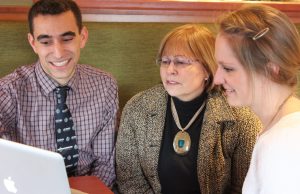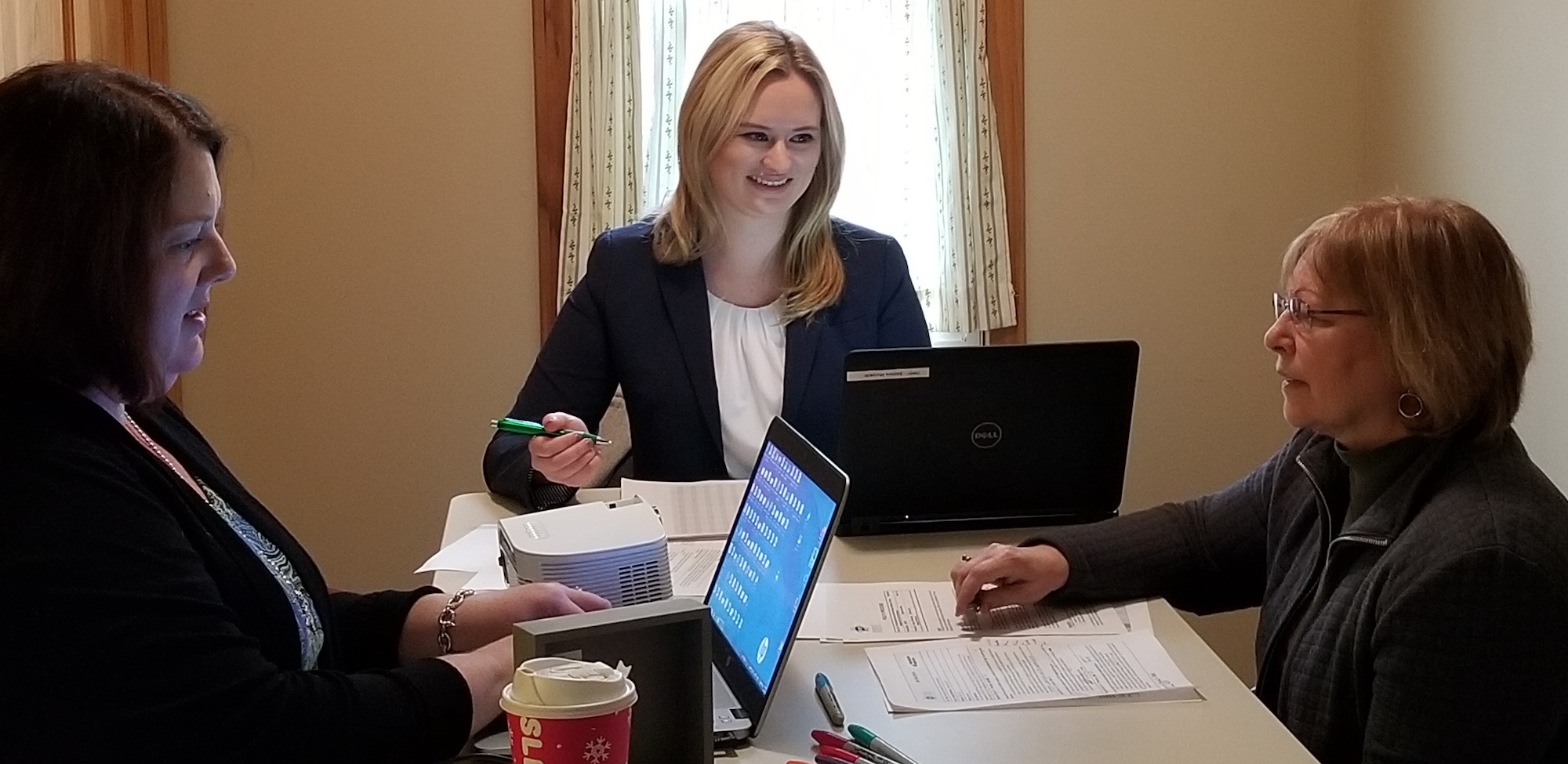2020 marks the 20th anniversary of Dr. Henry (Hank) Palmer’s retirement from UConn. It is also Palmer’s 55th and 60th reunion year (’60 ‘65). Dr. Palmer was a beloved and much respected 42 year School of Pharmacy professor who passed away in 2009 but names the region’s annual Henry A. Palmer Continuing Education Finale (since 2002) and a Fellowship in the School’s Department of Pharmacy Practice.
Below, Marie Smith, Pharm.D., Assistant Dean for Practice and Public Policy Partnerships and the Dr. Henry A. Palmer Endowed Professor of Community Practice at the UConn School of Pharmacy talks about UConn’s Palmer Fellowship program, its history, the work it has done, and where it is headed:
How did the Palmer fellowship program come about?
The Palmer fellowship program was created in 2016 to honor Hank’s legacy and celebrate his deep interest in having pharmacists work more closely with patients and other healthcare professionals. He was very interested in expanding pharmacist services beyond traditional dispensing roles. So it was my professional goal to “pay it forward” and train future pharmacist practitioner-researchers. Given the current changes in health care, the fellowship focuses on pharmacy practice transformation and team-based care.
What is the study of “practice transformation” and what are “patient care teams?”
Practice transformation has two aspects: how we deliver care and pay for health care. We want health care professionals, payers, policy makers, and consumers to understand pharmacists’ unique skills/roles on community-based healthcare teams. A pharmacist’s expertise in medication optimization and management is complementary to the skills of physicians and other clinicians. Pharmacists identify and resolve medication-related problems to avoid preventable medication-related hospitalizations and emergency department visits.

What type of research projects have you and the fellows conducted?
Our focus has been on primary care and community pharmacy settings. We have had 40 posters, 30 publications/presentations, and 4 funded grants by CMS Innovation Center/CT Office of Health Strategy, Community Pharmacy Foundation, and UConn Office of VP-Research. Some examples are:
· Changing Consumer Perceptions on the Value of Expanded Community Pharmacist Services
· Integrating Pharmacists on Primary Care and Population Health Teams
· Feasibility of a Pharmacist E-Consult Service with Primary Care Providers
Our work has been recognized with appointments to the Get the Medications Right Workgroups on Payment/Policy and Telehealth, as well as the CT Cost Benchmark Stakeholder Advisory Board and Primary Care Reform Workgroup.

Where are former fellows today?
Kate Steckowych Sacro, Pharm.D. is a population health clinical pharmacist with Yale Employee Health/Wellness. Erika Vuernick, Pharm.D., is an ambulatory care pharmacist at Yale New Haven Hospital. And Mary Mulrooney, Pharm.D., MBA, is Assistant Research Professor at UConn School of Pharmacy.
The Palmer Fund is actively accepting donations. Why should people give to support the Fellowship?
2020 has been a very difficult year but it marks a year in which the pharmacist’s role changed to be even more involved in patient care, just as Dr. Palmer had envisioned. Research results from our fellowship program have impacted this change and we hope to be able to continue to offer this position.
When you’re on the leading edge of doing practice-based research, it’s still too new for many organizations to fund. The Palmer Fund allows us to be more forward-thinking in our work. We are so grateful to more than 275 individual donors – without their support, the fellowship training experience would not be possible.
Support the evolution of pharmacy practice transformation with a gift to the Dr. Henry Palmer Professorship in Community Practice.



